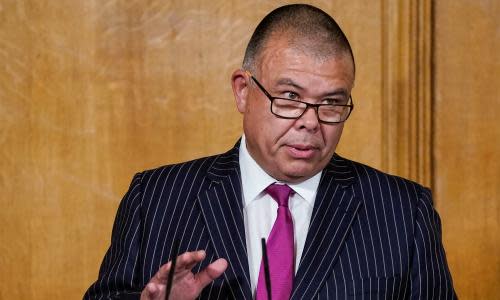By relaxing lockdown for shielders, the government is playing with people's lives

The announcement came out of the blue. On Sunday, the government said 2.2 million high-risk “shielders” in England and Wales will be allowed to go outside for the first time from Monday if they feel “comfortable”, either with members of their household, or, if they live alone, to meet one other person. These are people who, for the last 10 weeks, have been told to stay in their homes 24/7, without any break for exercise or fresh air.
This marks a remarkable U-turn from ministers. Previous guidance advised that people with serious underlying health conditions, such as lung disease or low immunity, would need to shield until the end of June. Andthere was no mention of an anticipated change in last week’s announcement easing lockdown for the wider public, nor any advance warning to health professionals. Disability organisations and charities appear to have been taken aback by the move, with the MS Society telling me they were “extremely concerned”.
From the outset of the pandemic, the government’s communication to shielders has been found wanting, to the extent that many didn’t even know how long they were supposed to shield for. The latest update – announced via tweets at 10pm on a Saturday night and trailed in the press – was like moving the goalposts on the quiet. Rather than hearing it first from a government briefing or from their doctor, shielders had to find out about the change on social media.
When I spoke to people affected, the reaction was one of confusion, anxiety, and anger. Some noted that they had been told by their doctors only 24 hours earlier that they would need to shield for at least another month. “There’s no way I’m trusting the government’s advice,” was the general response.
After weeks of mixed messaging, on top of the Dominic Cummings scandal, the impression is that this is policymaking on the hoof, risking “extremely vulnerable” people’s lives for little more than a short-lived PR stunt. As one leading scientist put it, the easing of shielding “seems to lack any obvious rationale other than to add to an ongoing ‘good news’ narrative that appears to have little grounding in reality”.
The science hasn’t changed and nor has the risk posed, so it is hard to understand why the guidance for high-risk people has. Now that the wider public are out and about more – and increasingly not following physical distancing rules – this is actually the time it feels more dangerous for people with underlying health conditions to step outside.
Sage advisers have warned a second wave is likely due to Boris Johnson easing the lockdown too early. Only two days ago, England’s deputy chief medical officer, Jonathan Van-Tam, insisted that the country was at a “very dangerous moment”. If some experts deem it too soon for healthy people, how are high-risk groups supposed to feel safe?
In almost every aspect, the government’s handling of shielding has been a mess. Many have struggled to get food, even reporting skipping meals or sleeping to stave off the hunger. The furlough scheme hasn’t given high-risk people the right to paid leave from work, even if they have been told by the government to stay home for their safety. Last week, it emerged the government had even removed some people from the extremely vulnerable list. Others who are “clinically vulnerable” – high risk but not deemed vulnerable enough by the government to shield – have largely been left to judge the risk themselves without any official guidance. It is hardly surprising that in this context, many people with underlying health conditions do not trust ministers to keep them safe.
If you tell people that they must stay in their homes 24/7 for their health, it is not too much to ask that you give them concrete evidence as to why the advice has suddenly changed. The government says it is to make things more “bearable” for shielders. But while it is right to acknowledge people are desperate to be outdoors and see loved ones again, they want to be safe while they do so.
Spain has developed a timetable for walks to ensure disabled and older people can go outside away from the general public, while Dublin has provided a two-hour period where only high-risk “cocooners” can come out to use local parks. England – and the rest of the UK – should follow suit. As it is, giving shielders more freedom without accompanying measures to protect us is at best incompetence and worst, outright negligence.
It is a terrible feeling to not trust your own government to keep you safe. At a time when people at the highest risk of coronavirus need more security than ever, we are left in fear and doubt. The fracturing of trust will surely cost us dearly.
• Frances Ryan is a Guardian columnist

 Yahoo News
Yahoo News 